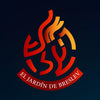
Pesach "skip" in memory of the special protection enjoyed by the people of Israel
"Three times a year you will celebrate the Holidays in My Honor"
(Shemot Exodus 23, 14)
Being the first of these three festivals of the 'Pesach' pilgrimages.
In ancient times, these festivals were the occasion for large numbers of pilgrims from all over the land of Israel and abroad to come to Jerusalem in accordance with the mandate of the Torah:
"Three times a year all males will appear before the Creator"
Tens of thousands of pilgrims gathered in the courtyard of the Great Temple for prayers and celebrations. The jubilation and spiritual recreation of the population were uncountable!
These three festivities not only commemorate vital national virtual events of our history, but also agricultural events. Just as Pesach marks the first harvest, Shavuot the second, and Sukkot the harvest of the fruits.
As is known, the Torah has two names for this important holiday: Pesach and Chag HaMatzot.
It is written: "In the first month, on the fourteenth day in the evening is Pesach, consecrated to the Lord, and on the fifteenth day of the month it is Jag HaMatzot, the feast of
Unleavened bread. (Vayikra-Leviticus 23)
The name Pesach, which means "to skip", reminds us of the special protection that the people of Israel enjoyed during the tenth plague in Egypt, "When the Creator passed over the houses of the children of Israel" (Shemot Exodus 12, 27)
Event that was later commemorated with the Paschal lamb offering "Korban Pesach".
Chag HaMatzot, on the other hand, refers to the command to eat only Matza, (unleavened bread), during the festival, just as the people of Israel did when they fled the land of Egypt and did not have time to prepare yeast so that the bread rises.
Generally the Torah calls the first day of the festival Pesach, since on the night of the first day, the Paschal offering was sacrificed, while the other seven days are known as Chag HaMatzot, in fact, both names are mentioned in various places of the Torah and the observance of the holiday were also referred to by the Prophets Yehoshua, Yejizkiya, Oshea, Yejezkel, Ezra and others.
The Mishna tells us about Pesach Mitzraim (in Egypt), and Pesach LeDorot (of the generations).
In other words, Pesach Mitzraim was observed the first night, as the offering was eaten in haste during the historic night of the Exodus.
While Pesach LeDorot, which arose immediately after, and was to be observed for seven days. Hence the first recalls the miracle that occurred in Egypt on the night of the exodus, which the Torah also calls "Laila Shmorim" The Night of the Vigil, while the second refers to the holiday observed by the people of Israel immediately after who left Egypt.
Pesach Mitzraim begins at midnight on the 14th of Nisan and ends at the end of the night, and while Pesach "Le Dorot" begins on the 15th and lasts until the 21st of the month of Nisan, being the period that marks our liberation and our beginning as a free and independent people.
(This year 'Erev Pesach' is April 8 of the Gregorian calendar)
The Garden of Breslev.
